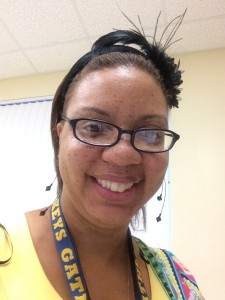 Before AmeriCorps NCCC, I was a part-time YMCA youth mentor finishing up my last year of college. I went to California State University-Fullerton pursuing my B.A. in Ethnic Studies with an Emphasis in African-American Studies. This major was an interdisciplinary degree that involved philosophy, history, and creative writing but in the simplest form, it was “the study of different cultures.” Whenever I tell people about my major, they give this misconstrued face and most of the times say, “What are you going to do with that? Do you want to be a teacher?” I was truly grateful of my major and knew the value of my education, but the reality set in that there were no concrete working skills or high job demand that I can get from my studies at that time.
Before AmeriCorps NCCC, I was a part-time YMCA youth mentor finishing up my last year of college. I went to California State University-Fullerton pursuing my B.A. in Ethnic Studies with an Emphasis in African-American Studies. This major was an interdisciplinary degree that involved philosophy, history, and creative writing but in the simplest form, it was “the study of different cultures.” Whenever I tell people about my major, they give this misconstrued face and most of the times say, “What are you going to do with that? Do you want to be a teacher?” I was truly grateful of my major and knew the value of my education, but the reality set in that there were no concrete working skills or high job demand that I can get from my studies at that time.
I was going in to my last semester of college and I started to brainstorm on what to do for job experience and/or career exploration. My experience with the YMCA was great and I loved working there, but I wanted to explore other options. Typical things you should do as a college junior and senior is utilize your Resource Centers as much as possible for job postings and internships. My counselor told me to look into internship opportunities because this is a great way to network and gain relevant work experience. Throughout the school year, I attended various career expos, resume workshops and business affiliations, but it was only when I went online and applied for AmeriCorps NCCC-FEMA Corps, that things were starting to change for the better.
After November 21th 2014, I will have committed my time in AmeriCorps NCCC-FEMA Corps for 2 service terms. FEMA Corps is a partnership with the AmeriCorps National Civilian Community Corps and the Federal Emergency Management Agency, bringing in young people aged 18-24 to commit 10 months or 1700 hours of national volunteering service. The program is team-based and members were given benefits like free travel, room and board, and real-world experiences. I was part of the first class of FEMA Corps Class 19 in Vicksburg, Mississippi. During that service year, I responded to Hurricane Sandy doing FEMA related work in New Jersey and New York. The highlight of that year was living on a Coast Guard training ship (Empire State 5) for a month in Bronx, New York.
As I write this piece, I will be finishing up my last months as a FEMA Corps Team Leader. The AmeriCorps program as a whole has been one of the greatest experiences ever in my life. I have done rewarding work for my country, traveled in beautiful US states, and met with remarkable people that I call friends this day and beyond. After AmeriCorps NCCC, I am given much more options to explore and a clearer sense of what my goals are personally and professionally.

